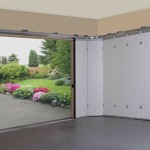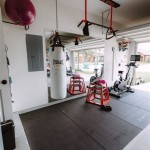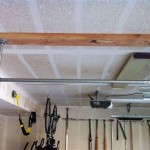Chamberlain Garage Door Opener Remote Not Working In Cold Weather
The unreliability of a garage door opener remote during cold weather is a frustrating experience for many homeowners. Chamberlain garage door openers, while generally reliable, can sometimes exhibit performance issues when temperatures drop. Several factors contribute to this phenomenon, ranging from battery performance to the physical properties of the opener's components. Understanding these factors and troubleshooting potential causes is crucial to restoring functionality and preventing future occurrences.
This article aims to provide a comprehensive overview of the potential causes behind a Chamberlain garage door opener remote malfunctioning in cold weather. It will explore the main issues, present possible solutions, and offer preventive measures to mitigate the impact of cold temperatures on the system's performance, thereby ensuring consistent operation of the garage door opener throughout the winter months.
Battery Performance in Cold Temperatures
One of the most common reasons for a garage door remote to fail in cold weather is the reduced performance of its batteries. Batteries rely on chemical reactions to generate electricity. These chemical reactions slow down significantly at lower temperatures. This reduced activity translates to a decreased voltage output from the battery, which might not be sufficient to power the remote's transmitter to send a signal to the garage door opener unit.
Different types of batteries are affected differently by cold weather. Alkaline batteries, commonly used in garage door remotes, are particularly susceptible to voltage drops in cold temperatures. Lithium batteries tend to perform better in cold environments, but they can still experience a decrease in performance at extremely low temperatures. The specific decline depends on the battery's quality and design.
To troubleshoot this issue, the initial step is to replace the batteries with new ones. If the problem persists, consider using lithium batteries, which are specifically designed for colder climates. Additionally, keeping a spare set of batteries in a warmer environment, such as inside the house, can be a practical temporary solution. Warming the batteries slightly before use can temporarily improve their performance.
Furthermore, it's important to consider the age of the batteries, even if they haven't been used extensively. Batteries degrade over time, and their performance can be further compromised in cold weather. Regularly replacing the batteries according to the manufacturer's recommended replacement schedule is a useful preventative measure.
Garage Door Opener Motor and Lubrication Issues
The garage door opener motor itself can be affected by cold weather. The motor's lubricant can thicken in cold temperatures, increasing the resistance the motor must overcome to operate. This increased resistance can trigger the opener's safety features, such as the auto-reverse function, leading the door to abruptly stop or reverse direction. Alternatively, a weaker motor might not have sufficient power to operate the door at all in such conditions.
The type of lubricant used in the garage door opener is also critical. Some lubricants are designed to withstand extreme temperatures, while others are not. If the lubricant isn't suitable for cold climates, it can become thick and sticky, hindering the smooth operation of the door. Using a lithium-based grease specifically formulated for garage door openers is often recommended.
Regular lubrication of the moving parts of the garage door and opener is essential, especially before the onset of winter. This lubrication reduces friction and ensures smoother operation, even in cold weather. The tracks, rollers, hinges, and chain or belt should be lubricated with a suitable lubricant.
If the garage door struggles to open or close even after lubrication, the motor might be reaching the end of its lifespan. In such cases, a professional inspection is recommended to assess the motor's condition and determine if replacement is necessary. Replacing the motor with a heavy-duty model designed for cold weather operation is also an option.
Signal Interference and Range Reduction
Cold weather can indirectly affect the signal transmission between the remote and the garage door opener. While radio waves are not directly affected by temperature, the components that generate and receive these signals can be. Reduced battery power, as discussed previously, can weaken the signal strength. Furthermore, cold temperatures can affect the circuit components within both the remote and the opener unit, leading to a reduction in their sensitivity.
Another factor contributing to signal interference is environmental conditions. The presence of ice or snow can create reflective surfaces that interfere with radio waves. Heavy snowfall or ice buildup near the garage door or opener can disrupt the signal path, reducing the range of the remote. Addressing potential obstacles or sources of interference can improve the remote's performance.
Troubleshooting signal issues involves several steps. Firstly, ensure that the antenna on the garage door opener unit is properly positioned and free of obstructions. The antenna might be a simple wire hanging from the unit, and ensuring it is extended and clear of any metal objects can improve signal reception. Secondly, try operating the remote from a closer distance to the garage door. If it works from a shorter distance, the issue likely involves either weak batteries or signal interference.
If the signal issue persists, consider reprogramming the remote to the garage door opener. This process re-establishes the connection between the remote and the opener unit and can sometimes resolve signal-related problems. The reprogramming procedure typically involves pressing a "learn" button on the opener unit and then activating the remote. Consult the owner's manual for specific instructions.
Finally, external factors such as nearby electronic devices operating on similar frequencies can also cause interference. Identify and potentially relocate devices that may be emitting radio frequency interference, especially if the problem appeared after a new device was introduced into the environment. Cordless phones, wireless routers, and other electronic devices can sometimes disrupt radio signals.
Physical Obstructions and Garage Door Balance
The physical state of the garage door itself can greatly influence the opener's performance, especially in cold weather. If the door is not properly balanced, the opener has to work harder to lift or lower it. This added strain is exacerbated by cold temperatures, potentially causing the opener to malfunction or the remote signal to be ignored due to the safety mechanisms. A garage door that is not properly balanced can also be dangerous, as it can fall unexpectedly.
Cold temperatures can cause the garage door's components to contract, leading to increased friction in the tracks and hinges. Ice buildup on the tracks or rollers can further impede the door's movement. Regular inspection of the door's hardware is crucial, particularly during the winter months. Look for signs of rust, damage, or misalignment. Clean the tracks and rollers regularly, removing any debris or ice buildup. Applying a silicone-based lubricant to the tracks and rollers can further reduce friction.
To check the balance of the garage door, disengage the opener by pulling the emergency release handle. Then, manually lift the door halfway. If the door stays in place, it is properly balanced. If it drifts up or down, the springs need adjustment or replacement. Garage door springs are under high tension, and adjusting or replacing them should only be done by a qualified professional to avoid serious injury.
Ensure that the photo-eye sensors near the bottom of the door are clean and aligned. These sensors are a safety feature that prevents the door from closing if an obstruction is detected. Snow or ice buildup on the sensors can trigger the safety mechanism, causing the door to reverse or stop. Regularly clear the sensors of any obstructions to ensure proper operation.
Wiring and Electrical Connections
Cold weather can also impact the wiring and electrical connections within the garage door opener system. Temperature fluctuations can cause wires to expand and contract, potentially loosening connections over time. Corrosion can also develop on electrical contacts, especially in humid or salty environments. These issues can lead to intermittent or complete failure of the opener.
Inspect the wiring connections at the garage door opener unit and at the wall-mounted control panel. Look for loose wires, frayed insulation, or signs of corrosion. Tighten any loose connections and replace any damaged wiring. If there is evidence of corrosion, clean the contacts with a wire brush or electrical contact cleaner. Ensure that the power supply to the opener is stable and adequate. Voltage drops or fluctuations can cause the opener to malfunction.
The wall-mounted control panel can also be affected by cold temperatures, particularly if it is located in an uninsulated garage. The control panel's internal components can become brittle in cold weather, leading to malfunctions. Check the wiring connections at the back of the control panel and ensure that the buttons are functioning properly. If the control panel is malfunctioning, consider replacing it. Some newer models come with improved insulation and weather resistance.
Consider having a licensed electrician inspect the electrical system if problems persist. They can check for voltage issues, faulty wiring, or other electrical problems that may be affecting the garage door opener. A professional inspection can identify underlying issues that are not readily apparent and ensure the system is operating safely and efficiently.

Garage Door Remote Not Working 5 Most Common Reasons Why

Craftsman Chamberlain Remote Garage Door Opener Keypad Cold Weather Operation Failure Repair

Avoiding Garage Door Problems During Winter

How To Fix 5 Common Garage Door Dilemmas Cnet

6 Garage Door Opener Cold Weather Problems Their Solutions Sti

My Garage Door Won T Close When It S Cold Action

How To Fix A Garage Door Remote That Is Not Working

Frozen Functions How To Address Garage Door Keypad Issues In Cold Weather Fix Doors Ca

How Cold Weather Affects Garage Door Openers

Why Did My Garage Door Remote Stop Working
Related Posts








